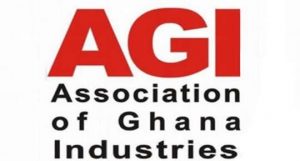The cedi depreciated by some 1.83 per cent to the US dollar from July 1 to September 31, 2019, representing a relatively stable quarterly performance by local currency.
The currency had collectively lost about 9.0 per cent in value in the first two quarters of this year. This brings to 10.83 per cent its total depreciation for the first nine months of this year.
This quarterly performance can be attributed to the Bank of Ghana’ position to ensure speculation does not dictate the market and also the availability of more dollars in circulation.
The central bank last week also announced a Foreign Exchange Forward Rate Auction limited to 7-day, 15-day, 30-day, 45-day, 60-day and 75-day tenors.
The Bank of Ghana quoted the interbank forex rate at GH₵5.32 to the US dollar yesterday, whilst the forex bureau were quoting about GH₵5.47 to the greenback.
Among six African currencies, the cedi was however the worst performing currency. It was followed by Mauritius rupees with a year-to-date depreciation of 5.39 per cent and Kenya shilling with a depreciation of 1.38 per cent.
Egypt pound was the best performing currency on the African continent with an appreciation of 9.80 per cent to the US dollar.
The Nigerian naira also appreciated by about 0.75 per cent to the greenback.
Senior Economic and Currency Analyst at Databank, Courage Martey, told Business Finder that the outlook of the local currency for the rest of the year is fairly stable.
“Basically we have a fairly stable outlook for the cedi against the US dollar on the back of the US$1.3 billion cocoa loan syndication.”
He emphasized that importers demand for foreign exchange and the treasury obligations are downside risks but the expected Cocobod inflows will absorb the demand between now and end of year.
Ratings agency, Fitch, had earlier projected an average of GH₵5.30 to one US dollar for 2019 from GH₵4.68/US dollar in 2018. It has not changed that position.
“We expect that the cedi will see a moderate sell-off in the short term due to the weakening of investor sentiment and real rates caused by a policy rate cut by the Bank of Ghana (BoG) in January.”
The BoG had cut by 900 basis points its policy rate-the rate at which it lends to commercial banks between November 2016 and April 2018. Between April 2018 and September 2019-despite inflation remaining within the 6.0-10.0 per cent target band, it still maintained the rate at 16.0 per cent.
Source; thefinderonline.com





